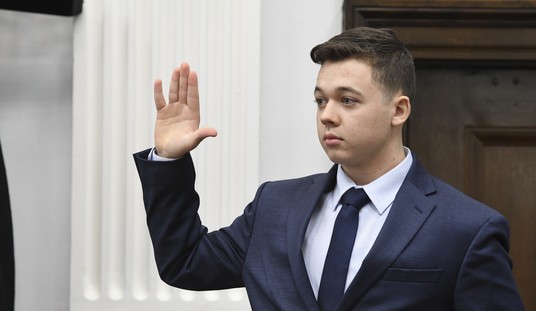President Donald Trump appears more than willing to sign the Fix NICS bill. The bill, first introduced following the massacre in Sutherland Springs, seeks to beef up the NICS system to try and help prevent convicted felons from slipping through the cracks.
Now, after the massacre in Florida, the president appears to be signaling his willingness to back the bill.
President Trump signaled this week that he supports bipartisan legislation to “fix” the nation’s background check system.
“While discussions are ongoing and revisions are being considered, the President is supportive of efforts to improve the federal background check system,” said Principal Deputy Press Secretary Raj Shah in a statement Monday.
Known as the Fix NICS Act, the legislation seeks to ensure federal and state authorities are submitting relevant mental and criminal history records to the FBI’s National Instant Criminal Background Check System (NICS).
Sponsors of the bill include John Cornyn (R-TX), Chris Murphy (D-CT), Tim Scott (R-SC), Richard Blumenthal (D-CT), Orrin Hatch (R-UT), Dianne Feinstein (D-CA), Dean Heller (R-NV), and Jeanne Shaheen (D-NH).
The bill isn’t without controversy, though.
Perhaps at the forefront of the opposition is Gun Owners of America, who argue that the new system will include numerous people who haven’t committed any kind of felony, like those with traffic tickets.
The law itself contains no such stipulation, but that’s not because GOA is out of their mind. Following the above-linked article, GOA’s Erich Pratt reached out to me to explain the organization’s concerns.
It seems they might have a point.
From Speeding to Losing Your Gun Rights
Because some of our members have wondered how an unpaid traffic ticket could land you in NICS, we asked a member of a Massachusetts police force to explain it. Here is what he told us:
Having arrested people on warrants, let me explain how it works, for parking tickets or anything else for that matter.
A parking ticket or speeding ticket or whatever is issued by a police officer. The recipient forgets about it — due to vacation, work, family etc. — and after a few months the issuing police department and or court realizes it is unpaid AND the defendant did not respond, i.e. they didn’t plead not guilty or ask for a trial.
At this point the court issues a warrant, usually for failure to appear. When a police officer stops or encounters that person for any reason, and enters their information, name and date of birth into NCIC [National Crime Information Center], the warrant shows up. In some cases the officer does NOT know what the warrant is for and only knows which court issued it.
Regardless, the subject of the warrant is considered a fugitive from justice. (Emphasis added.)
How many Americans know that their unpaid speeding ticket — while traveling out of state (say, on vacation) — could make them a “fugitive from justice”?
While this isn’t typically where people’s minds go when thinking about a speeding ticket landing someone on the “can’t buy” list, GOA has a valid point. Someone who forgets about a speeding ticket in Florida while vacationing isn’t exactly the kind of hardened criminals I’m worried about getting their hands on firearms. Yet that’s something that should be addressed with the bill before it gets to President Trump’s desk.








Join the conversation as a VIP Member